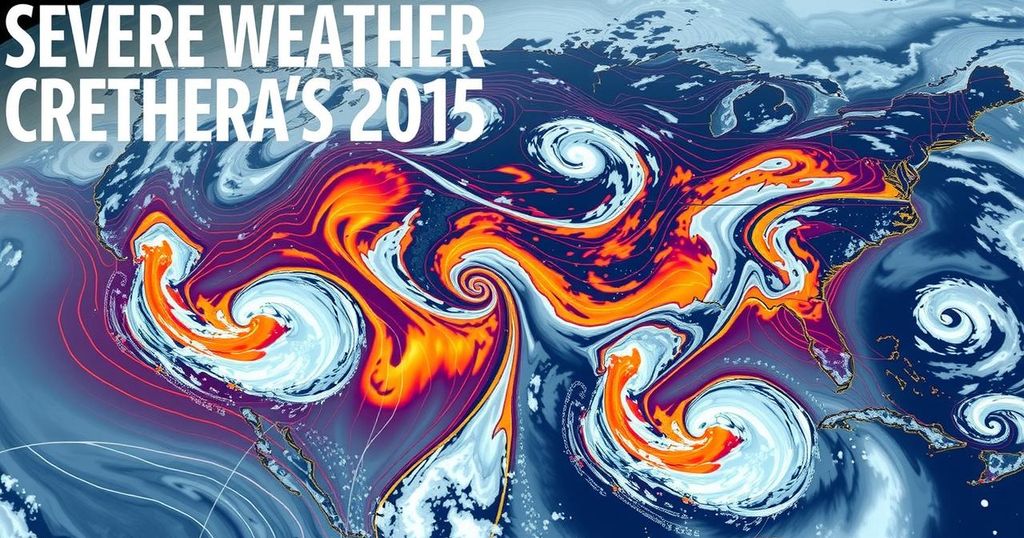The Alarming Impacts of Extreme Weather in 2024 and Climate Change

In 2024, extreme weather reached alarming levels, with record temperatures leading to fatal heatwaves, floods, and wildfires. Climate change contributed to thousands of deaths and significant displacement. These events reveal the urgent need to transition from fossil fuels to prevent further environmental degradation and highlight the critical importance of protecting essential ecosystems like the Amazon rainforest.
The year 2024 witnessed unprecedented levels of extreme weather, with record-breaking temperatures resulting in severe heatwaves, droughts, wildfires, storms, and floods. These catastrophic events resulted in the loss of thousands of lives and displaced millions. With an increase of 1.3°C in human-induced warming, the situation underscores the urgent need to transition away from fossil fuels that contribute to climate change. The research identified that climate change was a contributing factor in at least 26 significant weather events, demonstrating the dire consequences of extreme weather conditions amplified by climate change.
The global temperature surge led to extreme rainfall and flooding across many regions, including areas like Kathmandu, Dubai, and Brazil. Of the 16 floods analyzed, an overwhelming 15 were exacerbated by climate change. This situation indicates that a warmer atmosphere holds more moisture, resulting in the possibility of more severe rainfall. Also, deficiencies in early warning systems and preparation measures have contributed to the high casualty rates observed across these extreme weather events.
In 2024, climate change was responsible for an average increase of 41 dangerous heat days, posing health threats to populations, particularly in small island nations and developing states that are disproportionately affected. These findings expose the ongoing dangers of extreme heat, which remain largely underreported.
While certain extreme weather events were influenced by El Niño, the pervasive effects of climate change played a dominant role. This was evident in the historic drought conditions experienced in the Amazon rainforest. The scientific consensus underscores that with ongoing global warming, the influence of climate change will continue to eclipse other natural environmental factors. Additionally, warmer seas and air temperatures have intensified destructive storms, evidenced by Hurricane Helene and Typhoon Gaemi, with climate change increasing the intensity of many Atlantic hurricanes significantly since 2019.
The critical ecosystems of the Amazon rainforest and Pantanal Wetland have suffered immensely from severe droughts and wildfires attributed to climate change, resulting in considerable biodiversity losses. Given the Amazon’s vital function as a carbon sink, protecting these ecosystems through measures to end deforestation is essential for future climate stability.
In the context of climate change, the unfolding events of 2024 highlight the increasingly dangerous nature of extreme weather phenomena. As the planet warms, human activities and greenhouse gas emissions intensify weather patterns, leading to severe natural disasters. Understanding the contributions of climate change to phenomena such as extreme heat days, floods, and hurricanes is crucial in addressing the urgent crisis faced globally. Moreover, a sustained examination of vital ecosystems like the Amazon rainforest reveals their importance in regulating carbon and maintaining ecological balance, advocating for immediate environmental protection efforts.
The events of 2024 illustrate a stark reality of our changing climate, characterized by record-breaking temperatures and an alarming rise in extreme weather events. The loss of life and displacement caused by climate-induced disasters underscore the urgent need to transition away from fossil fuels and improve disaster preparedness. Protecting critical ecosystems further supports global climate stability, emphasizing that immediate action is essential to mitigate the escalating risks associated with climate change.
Original Source: reliefweb.int






